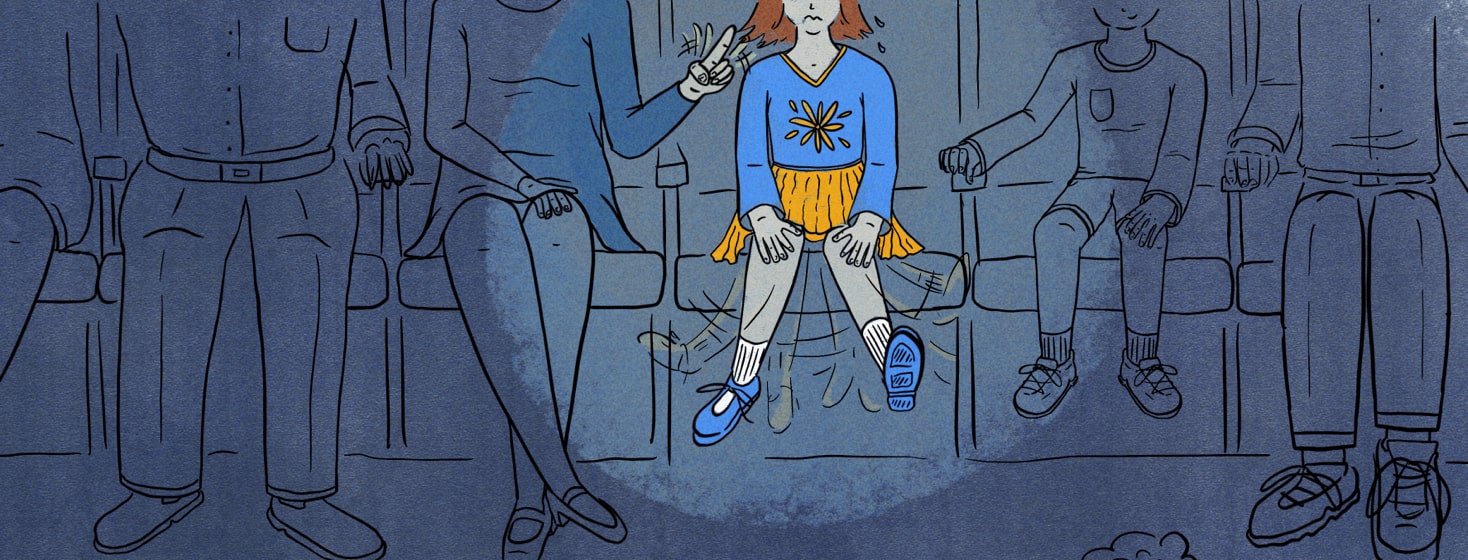The Child With RLS
As an adult, I have a name for restless legs syndrome (RLS). I have researched it to within an inch of its life. I’ve joined forums and discussed it at length with my doctor. I have managed it through lifestyle changes, supplements, and pharmaceutical support. I have knowledge, and I have used that knowledge to improve my condition. And I’m happy to say I’ve been very successful in that regard.
But it hasn’t always been this way.
I remember the little girl I was
Restless legs syndrome is something many of us have for our entire lives. Some people have short experiences during pregnancy, respond adversely to a medication, or experience it as a result of another medical condition. But some of us are neurologically wired to have it our entire lives.
I can’t speak for my infancy. I don’t remember it, and those who I could ask are no longer with us. But I can remember the little girl with the golden curls who couldn’t sit still for love or money. Who went to sleep at night stretching her toes out as long as they would go. Who tossed and turned so much that she made a god-awful mess of the bed each night. I remember the little girl who was taken to orchestral concerts to watch her daddy perform and was constantly reprimanded for not sitting still.
My heart was in conflict with my body
When I was a child, there was always a part of me that wanted to be good — that wanted to be praised for being a willing and peaceful child. I was also a willful and active child that never sat still.
These 2 things were often at odds. My heart was dedicated to sitting still and being quiet – the picture of childhood my mother had planned for us. My body was determined to run and jump and twitch at every conceivable moment, something my mother certainly had no desire to witness.
The war between 'being good' and being restless
Sitting at the table for dinner was an oftentimes difficult affair. While my mother sat still and consumed the meal that she had worked hard to put upon the table, my little legs were doing a merry dance under the table, vibrating the whole dinner for everyone, little tsunamis appearing in all the glasses of water.
My younger sister was very good at sitting still, something for which she received much praise. My younger brother was not so good at sitting still, something for which he received many reprimands.
I was quite a few years older and expected to be setting a good example. The war between being good and releasing the tension in my legs never let up. Releasing that tension always won. I could not keep still.
Being criticized for something you can't control
RLS was not a commonly known condition when I was a child. My parents never had a name for it, even though it was abundantly clear my father had a lot of restlessness going on. I had inherited it from him.
But we didn’t have terminology. We didn’t know it was a neurological thing. My mother thought it was a choice and I was constantly criticised for being unable to keep still. She meant well, my mother. She had many fine qualities, and sometimes all she wanted was a little bit of peace. I get it. I’ve raised 3 kids who also have varying degrees of RLS.
But it is disconcerting to be criticised as a child for something over which you have no control.
My brother’s asthma attacks were never criticised, just managed and treated – because my parents understood he had no control over them. The constant wriggle, wiggle, jiggle, however — that was deemed to be a choice I was making. It was not. The little neurons in my legs were busy firing, and I was busy trying to swat them away.
I am no longer the naughty girl who couldn't sit still
Being an adult and finally receiving a diagnosis brought a lot of comfort. It didn’t cure the condition straight away, but it gave me a sense of being okay.
I was no longer the naughty girl who wouldn’t sit still. I was an adult with a condition who couldn’t sit still. The difference was obvious – to me.

Join the conversation